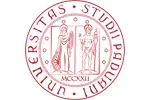We're moving! This site will be relocating to goingto.university in 2026. Please update your bookmarks to the new address.


| The award | How you will study | Study duration | Course start | Domestic course fees | International course fees |
|---|---|---|---|---|---|
| MSc | Full-time | 2 years | October | - | EUR 2739 per year |
A course combining technological innovation (hardware) and design / application skills (software), training professionals capable of working from the single component level up to the most complex systems. You may choose from six paths: Nanoelectronics and photonics, Electronics for energy, Advanced integrated circuits, Biomedical and health care, Consumer electronics and domotics, Smart industry and automotive. The variety of educational paths and workshops is a guarantee of multidisciplinarity and of a training in tune with the continuous evolution of technology. You will be provided with the skills required to work in many employment sectors, all characterised by high innovation and competitiveness: from companies for automation and robotics, to those for aeronautics and space, from manufacturing companies to all of those in which skills for development and use of electronic systems and telecommunication services are required.
Characteristics and objectives
Features and purpose
The master degree in Electronic Engineering is aimed at training designers of electronic systems in various sectors, such as electronics for computing and telecommunications, industrial, electronics for biomedical applications, the electronics domestic use (home, office, transport), the electronics for airborne-space systems.
The Master engineer professional figure will be able to adapt to the rapid and continuous technological innovation, to easily interact with other Engineering sectors and to operate in all areas of application electronics. In particular, the graduates will have the ability to solve engineering problems of high complexity, operating in multidisciplinary environments and in full cooperation with other members of the technical staff. They will be able to evaluate, analyse and solve problems in new and emerging areas of their specialization by applying innovative methods in problem solving. They will have the ability to design and conduct analytic studies, to operate in the field of measurements, computer simulations and experiments in the laboratory. They will critically discuss the obtained data, draw conclusions and make decisions with the aim of optimizing the proposed solutions. They can actively participate in decision-planning phases of the design of new equipment and systems. They have the ability to assess the possibility of application of emerging technologies, evaluating the purchase of equipment and consciously choose the suitable components to the development of complex systems. Finally, they will develop their awareness in the reliability problems often heavily dependent on the application sector of the product.
Programme structure
The programme offers six study paths that focus on different aspects of contemporary electronic engineering:
- Nanoelectronics and photonics
- Electronics for energy
- Integrated circuits
- Biomedical and health care
- Consumer electronics and domotics
- Smart industry and automotive.
They all include a block of mandatory core course units (51 ECTS) aimed to guarantee that all graduates acquire a solid foundation in the main areas of electronic engineering.
Occupational opportunities
The master electronics engineer, thanks to a solid basic education and to a significant expertise in the key application areas, enhanced by highly interdisciplinary nature of knowledge, aims to meet the advanced and innovative requirements of most high-tech companies. The Master of Science in Electrical Engineering opens employment opportunities both in small and medium-sized enterprises, operating in various sectors of information technology, electromechanical, biomedical, entertainment, and in large enterprises of microelectronics, telecommunications, automotive, avionics. The curriculum offers a multidisciplinary training, compatible with the flexibility required by market globalization and the constant evolution of technologies and products.
Typical employment opportunities for graduates in Electronic Engineering are in:
- companies that design and develop electronic components, equipment, and systems, including the semiconductor industry;
- companies that develop systems and devices in different sectors for which electronics represents the essential element: the automotive, biomedical, telecommunications, avionics, space, solid state lighting, management and conversion;
- companies that design and develop equipment, systems and infrastructures for the acquisition and transmission of information and its use in telematic applications;
- manufacturing enterprises, agro-food companies, companies operating in residential areas, areas of public administration and service companies, in which systems and infrastructure for the acquisition, processing, processing and transmission of information (data, voice and images) are used;
- industrial automation and robotics companies that use systems for the automation of their manufacturing process;
- companies from different sectors, which require expertise in the development and use of electronic systems and telecommunications services in the internal organization support, production and marketing;
- public and private enterprises of telecommunication services and terrestrial or satellite remote sensing.
Graduates in Electronic Engineering can also work professionally on the standard test and collaborate with certification laboratories.
Apply now!
Our tuition fees will not exceed 3000 euros per year. Scholarship and fee waivers are available for international students, for more information visit our website.
Bachelor diploma (or equivalent)
English language
B2 level (CEFR) or equivalent
Please check out this link for the full list of accepted certificates, minimum scores and exemptions
Below are some suggested courses at other providers that you may also be interested in:
Advanced Bachelor of Bioinformatics Advanced Diploma, Bachelor Degree
Howest University of Applied Sciences
Find out moreIf you do not meet the entry requirements for this course then consider one of these postgraduate preparation courses from another institution:
Graduate Diploma of Engineering (Safety, Risk and Reliability)
Engineering Institute of Technology
Find out moreGraduate Diploma of Technology (Software Engineering) (FedUniv at IIBIT)
International Institute of Business & Information Technology (IIBIT)
Find out moreThere are 59 other courses listed from University of Padua. A selection of these are displayed below:
Join the StudyLink email list and never miss a chance to turn your study abroad dreams into reality!

Find out more about studying in Italy